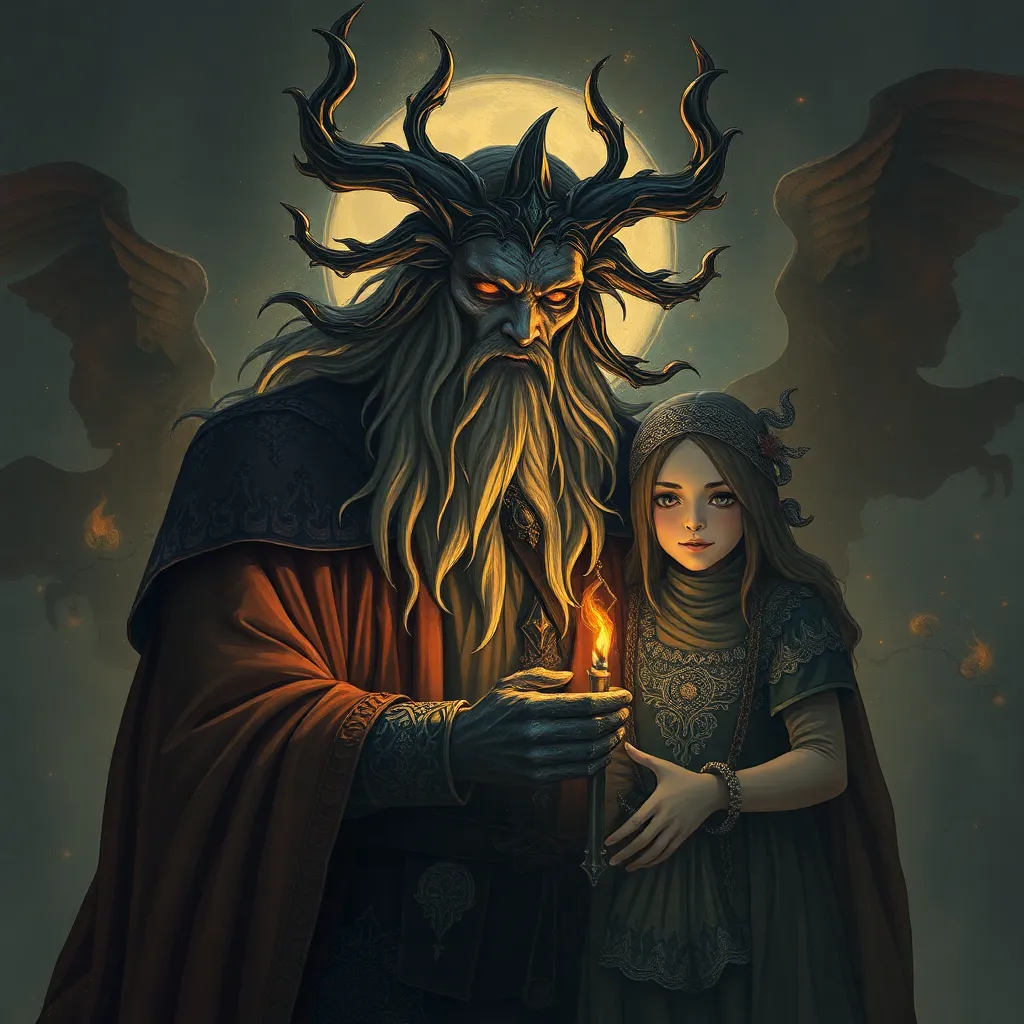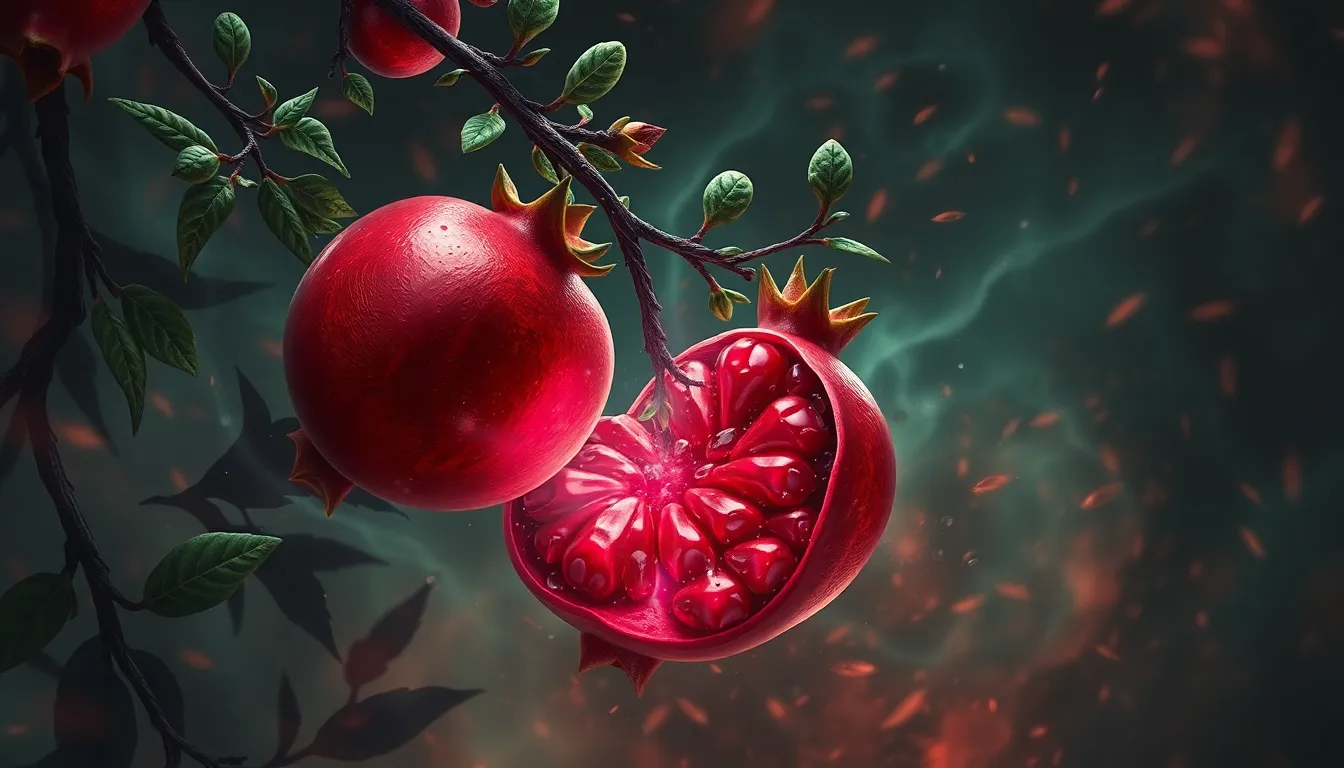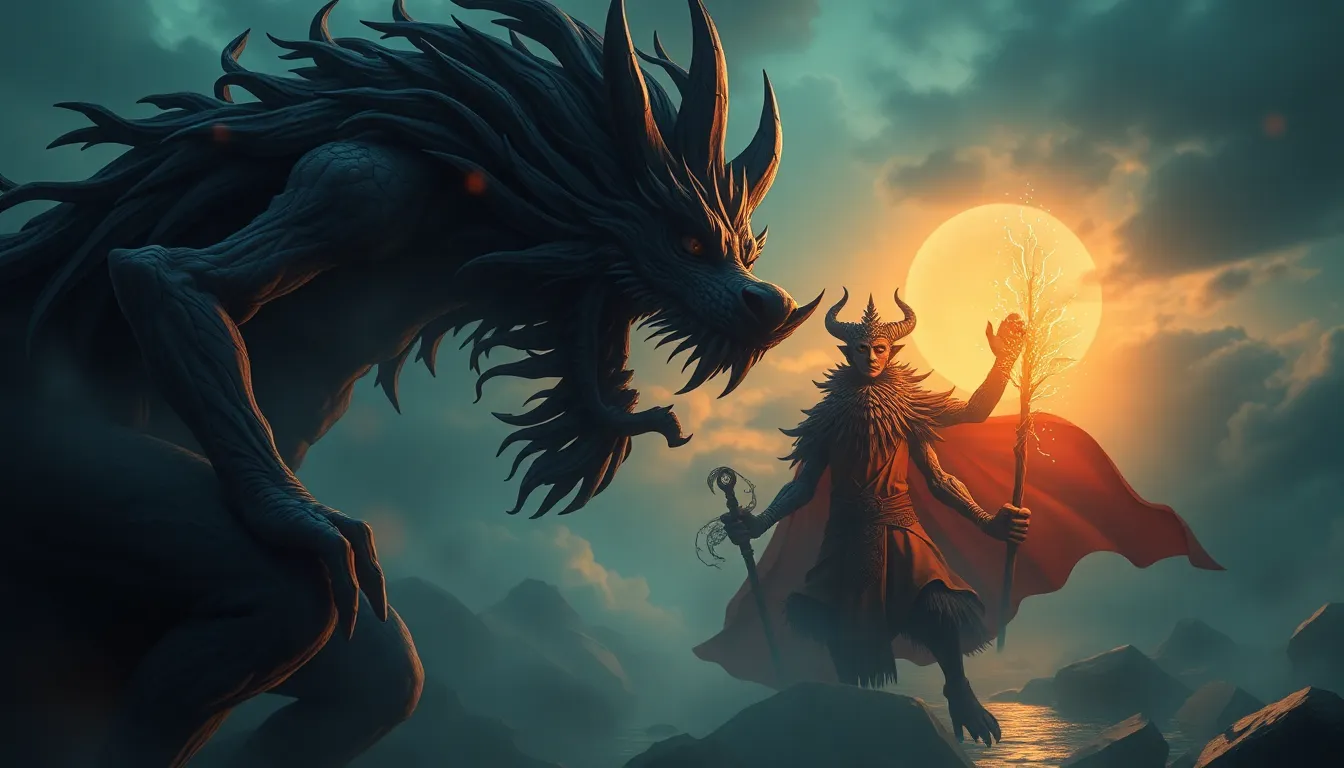The Deathless and the Family: Koschei’s Role as a Father, Brother, and Husband
I. Introduction
Koschei the Deathless is a prominent figure in Slavic folklore, often depicted as an immortal antagonist who embodies the darker aspects of power and greed. His character is not only defined by his fearsome reputation but also by his complex familial relationships. In many tales, Koschei’s interactions with his family members—be it as a father, brother, or husband—reveal deeper insights into his character and motivations. This article aims to explore these familial roles and their significance in understanding Koschei’s place within Slavic mythology.
II. Understanding Koschei the Deathless
Koschei is often characterized as a skeletal figure with a heart hidden away, representing his immortality and the idea that true death cannot be achieved unless his heart is destroyed. His primary traits include cunning, malevolence, and a relentless pursuit of power. The implications of his immortality are profound; while he can live forever, his relationships with others are marked by conflict, manipulation, and an insatiable desire for control.
Culturally, Koschei serves as a symbol of the dangers of unchecked ambition and the moral complexities of familial bonds. His narratives often intertwine themes of loyalty, betrayal, and the consequences of power, making him a compelling figure in Slavic mythological studies.
III. Koschei as a Father
In various tales, Koschei’s role as a father is multifaceted, often oscillating between nurturing instincts and tyrannical control. His paternal responsibilities can be seen as a reflection of his character’s duality; while he may love his offspring, his fear of losing power often overshadows this affection.
- Paternal Instincts: Despite his villainous nature, there are instances where Koschei demonstrates a protective instinct over his children, viewing them as extensions of his power.
- Offspring Relationships: In some stories, his children either rebel against him or are manipulated into serving his ambitions, showcasing a strained relationship.
The impact of his immortality complicates his role as a father. Koschei’s inability to die creates a rift between him and his human children, who are bound by the mortality that he transcends. This dynamic often leads to tragic outcomes, reflecting the broader themes of loss and sacrifice within familial relationships.
IV. Koschei as a Brother
Koschei’s relationships with his siblings reveal another layer of his character. The dynamics of rivalry and loyalty among brothers are common in folklore, and Koschei is no exception. He often finds himself at odds with his brothers, driven by jealousy and ambition.
- Rivalry: Many tales depict Koschei as envious of his brothers’ achievements or powers, leading to conflict and betrayal.
- Loyalty: In some narratives, however, there are moments of brotherly loyalty that highlight the complexity of these relationships.
These sibling relationships not only shape Koschei’s character but also serve as a reflection of the broader themes of family loyalty and the consequences of ambition. The tensions between familial bonds and personal desires often lead to dramatic confrontations in the stories.
V. Koschei as a Husband
Koschei’s romantic relationships and marriages are often portrayed with a blend of passion and possessiveness. His love is intense, yet it frequently borders on obsession, revealing how power and control can distort familial love.
- Romantic Relationships: Koschei is often depicted as pursuing beautiful maidens, sometimes kidnapping them, which highlights his desire for possession rather than genuine affection.
- Power and Possession: The portrayal of his marital roles often emphasizes themes of dominance, where love is intertwined with control.
Case studies from specific myths illustrate Koschei’s role as a husband. For instance, in some stories, he captures a princess and attempts to make her his wife, showcasing his ruthless nature. These tales often culminate in a struggle between the heroic figures who seek to rescue the damsel and Koschei, who embodies the darker aspects of love and power.
VI. The Interplay of Family and Power
The familial roles that Koschei occupies significantly influence his quest for power. His relationships are often marked by betrayal and sacrifice, reflecting the complexities of human emotions within the family unit.
- Betrayal: Many tales involve betrayal among family members, highlighting how ambition can fracture bonds.
- Sacrifice: Characters often face dilemmas that force them to choose between family loyalty and individual ambition.
This tension between familial loyalty and personal ambition is a recurring theme in Koschei’s narratives, providing a rich exploration of how family dynamics can impact one’s quest for power.
VII. Comparative Analysis with Other Mythological Figures
When comparing Koschei’s family roles with similar figures in other mythologies, such as Hades from Greek mythology or Loki from Norse mythology, interesting parallels emerge. Each of these figures embodies themes of immortality, power, and complex family relationships.
- Hades: Like Koschei, Hades is often portrayed as a figure who rules through fear and power, yet he also exhibits a desire for companionship and loyalty.
- Loki: Loki’s relationships with his family are marked by betrayal and mischief, similar to Koschei’s interactions with his kin.
These comparisons offer insights into different cultural interpretations of fatherhood and brotherhood, illustrating how themes of immortality and family ties resonate across various mythologies.
VIII. Conclusion
Koschei the Deathless is a multifaceted character whose roles as a father, brother, and husband provide a rich exploration of familial dynamics in Slavic folklore. His relationships are marked by complexity, reflecting themes of loyalty, betrayal, and the pursuit of power. Understanding these dynamics enhances our comprehension of Koschei’s character and the broader implications of family within mythological narratives. The interplay between family and power is not only central to Koschei’s stories but also resonates with universal themes found in mythologies worldwide.




